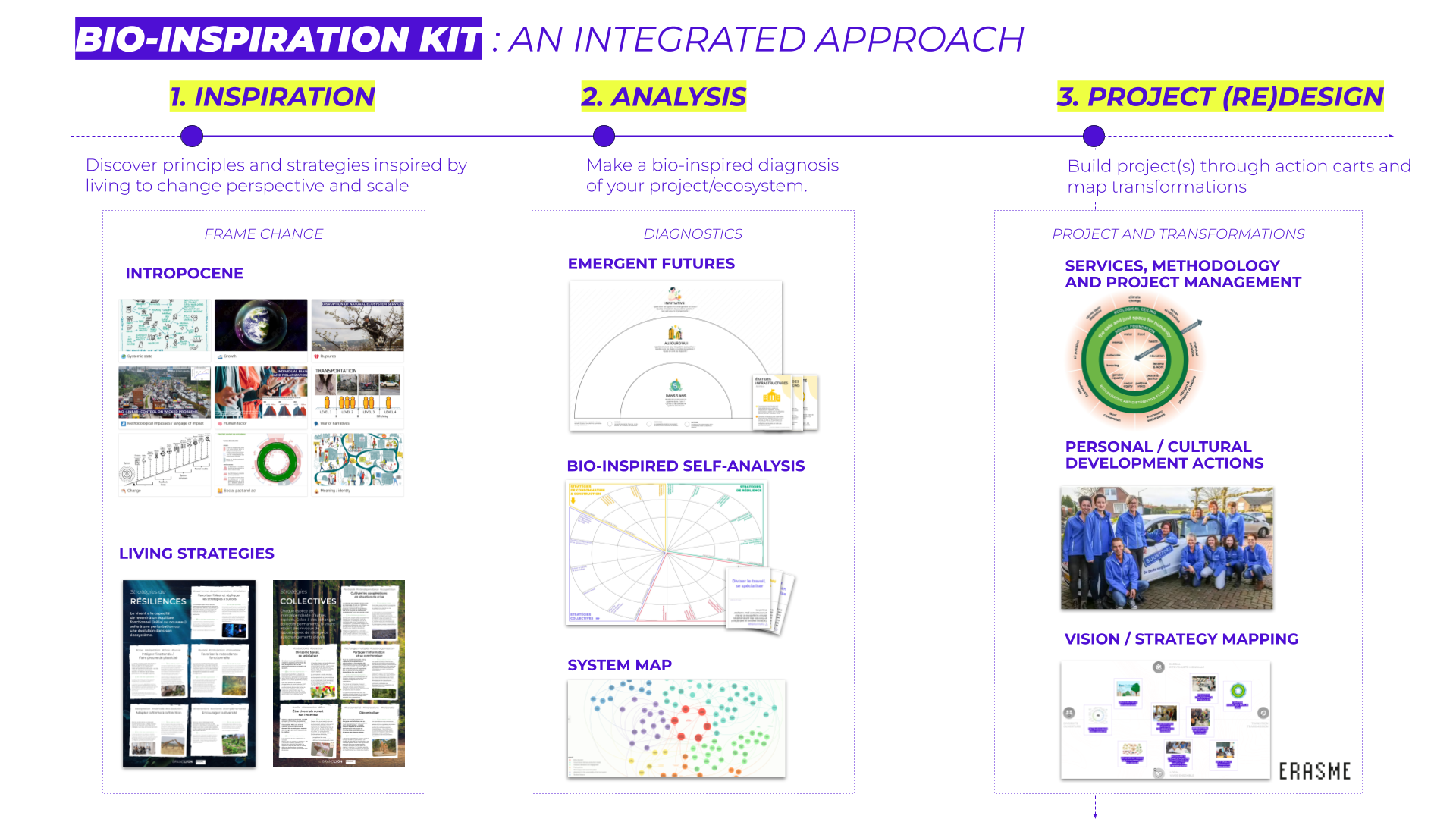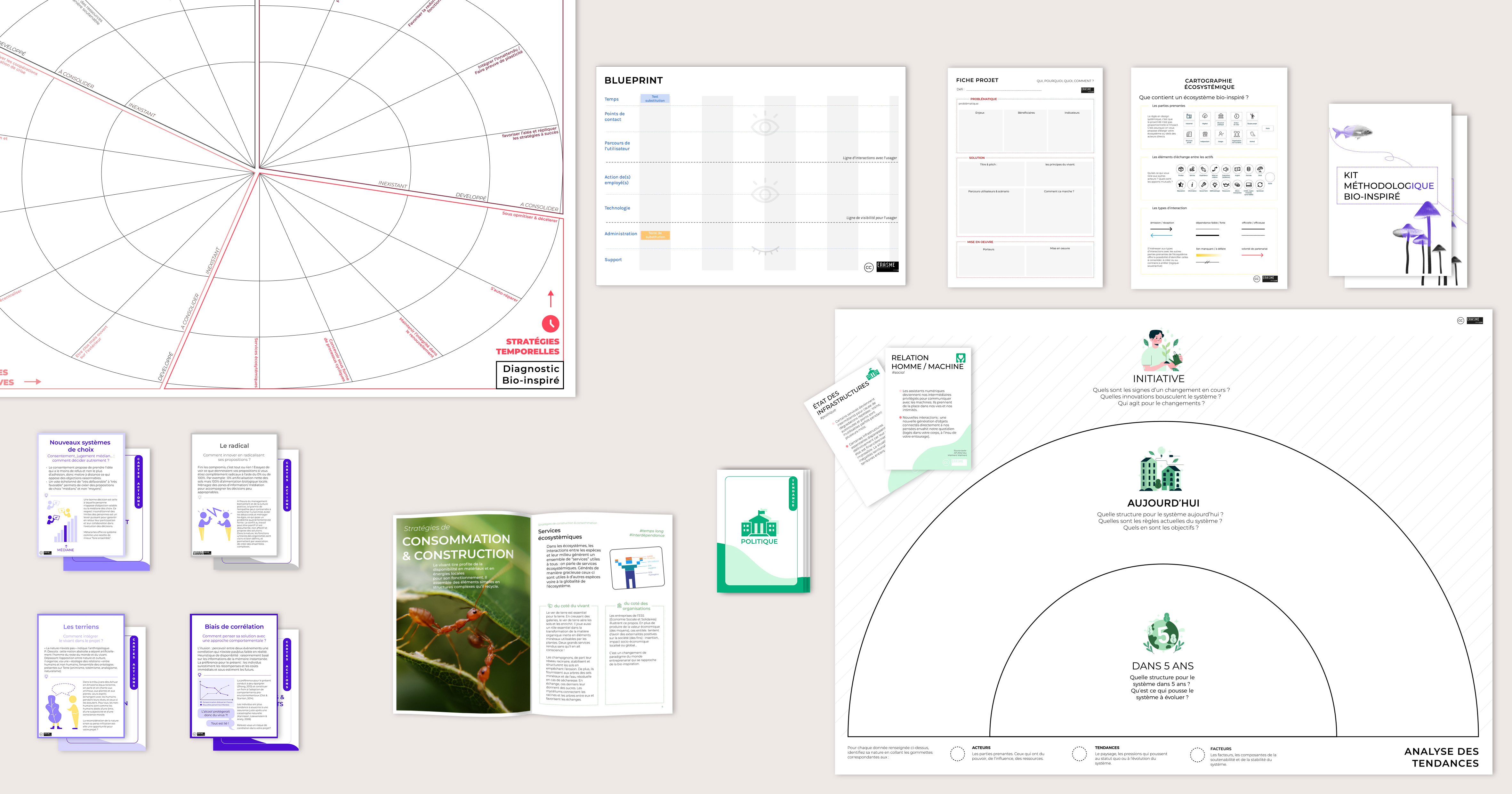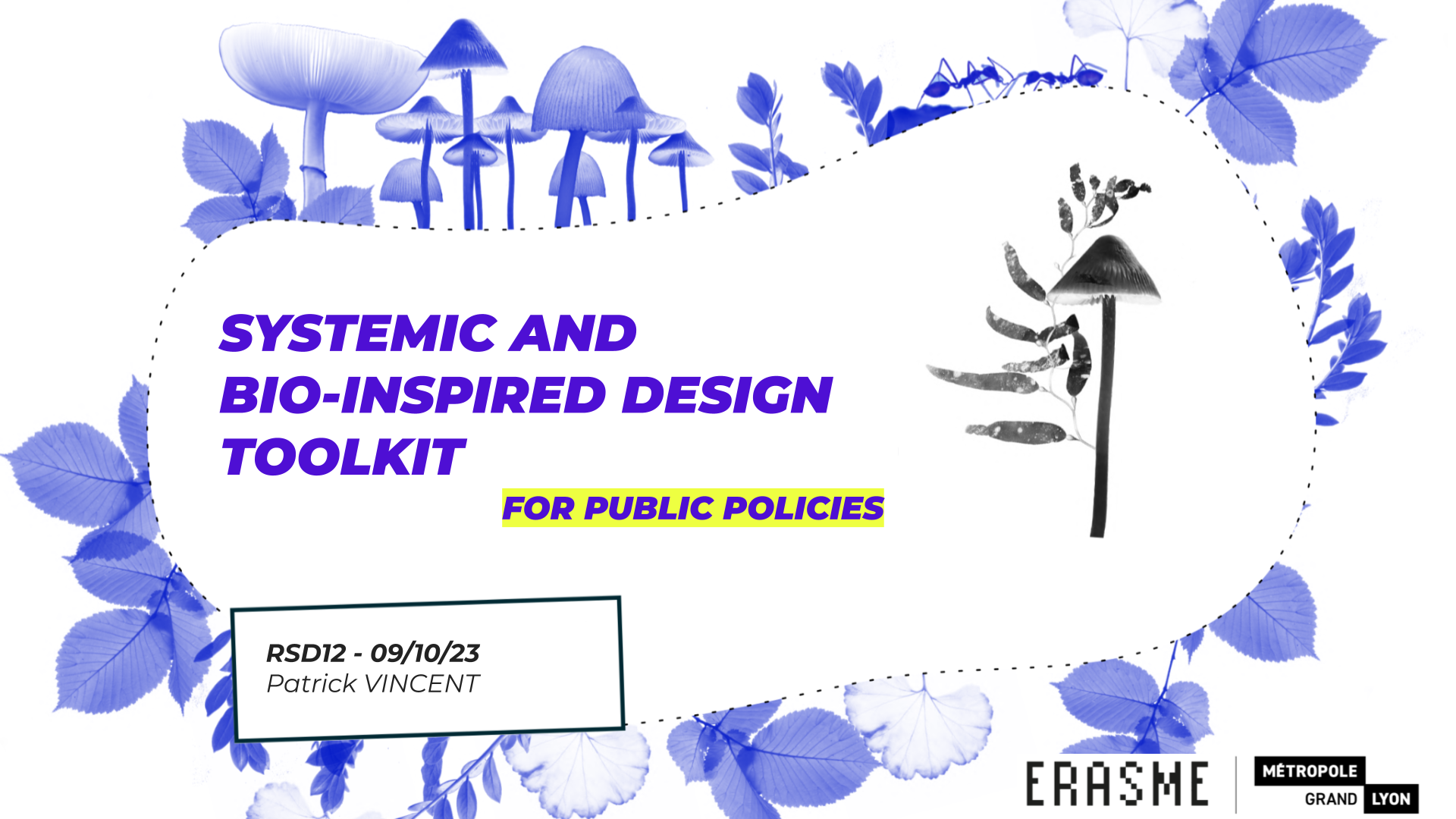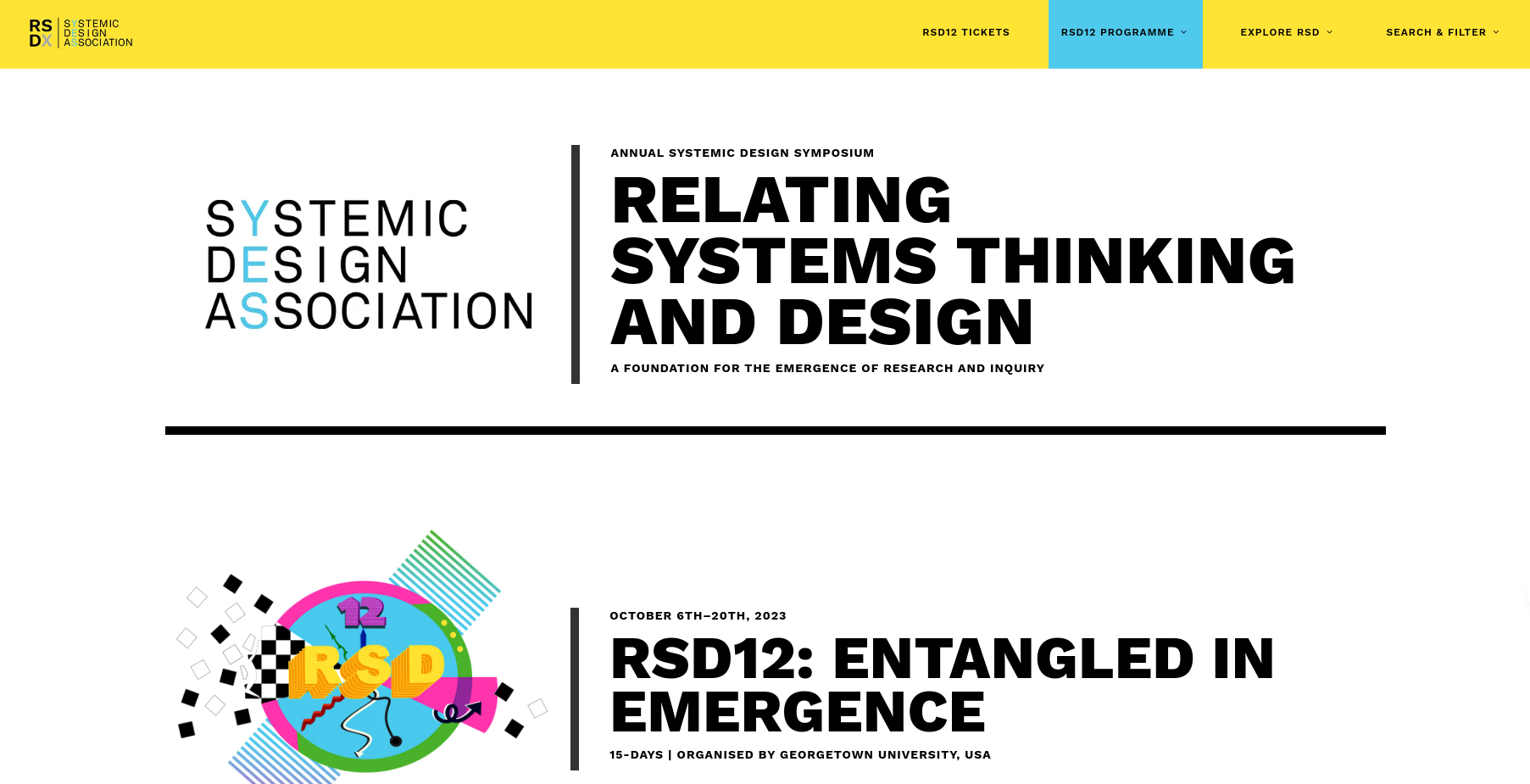Opportunities for bio-inspired tools in the anthropocene context
Bio-inspired design is an emergent discipline at the crossroads of circular economy, systemic design, ecology and change management. It is a unique opportunity to use new lenses, mindsets and tools to address differently the systemic issues in which we are locked and build new regenerative cultures as well as personal, meaningful answers (Erasme, 2020 ; Darja Dubravcic 2015)
In a world in inversion, we need to change perspective, scale and action strategies and discover how living principles (Olivier Hamant, 2022 ; Gratton 2000) can become an everyday operational lever to go beyond ruptures : diagnosis, vision, call to action and even a transformation plan for our organisations.
Sub-optimality, circularity, randomness, local consumption, decentralisation, cooperation, self-repair... are all unlikely levers that our organisations can mobilise to balance the control and performance approaches with the aim of going far.

Why are our actions not sufficient and the system resisting to change at all states (individual, cultural, structural) ?
For several decades a great diversity of leverages have been mobilised by organisations to address general interest problems and adapt to the new nested crises state of our contemporary world, for example, public development, providence, pedagogy, and concertation. At the same time, the planetary limits have been exceeded, threatening territories’ habitability—this includes empirical evidence of sustained accelerations, the collapse of biodiversity, increasing pollution and inequality.

Erasme, in partnership with the Urban School of Lyon, the Center for Research on Altitude Ecosystems and the Holomea agency, and in collaboration with the Diplôme Supérieur d’Arts Appliqués of Villefontaine, has developed Bio-Inspiration, an experimental methodological approach linking scientific contributions (ecology, sociology, anthropology) and the transformation of organisations and working cultures.
Bio-Inspiration’s objective is two fold :
● Equip the resilience/robustness and sustainability of projects of all structures and, more generally, of territories, based on trajectories inspired by living
● Accelerate the changes of perspective, making it possible to connect and reintegrate the living at all levels of individual and collective strategies and, therefore, support the cultural changes initiated by the recent crises.
The Bio-Inspiration Toolkit is a result of this experimental approach made up of a set of tools and resources intended to support a project, from its analysis to the design of solutions. It is based on knowledge of ecosystems and the achievements of systemic design.
The Toolkit is applicable in many situations : incompleteness of certain parts to co-produce uses with time and users, prioritisation of commons and shared benefits, sub-optimality of organisations to promote resilience and benefits over time long, analysis of the globality of interdependencies -visible and invisible- to activate levers of profound/cultural change.
The toolkit has been released in english during #RSD12 :
https://rsdsymposium.org/living-strategies-bio-inspiration-toolkit/#

In this time, we have shared theoretical contributions and put into practice tools for analysis and call to action. It is of interest to project leaders or strategy directors with various issues or subjects (wicked problem, user service development, strategy, management).
1. Dive into the state of the world and our organisations
a. Discover through scientific keywords why the anthropocene is an ending system
i. Acceleration, interdependency, fluctuations/dynamics, limits in a finite world
ii. Playing with tensions : soft and strong sustainability, nature vs culture, ecosystemic services, optimisation and resilience
b. Internal fragilities and resilience leverages our organisations
i. Re-sense the common strategic, methodological, individual, and cultural issues we share
ii. Reversing the organisational challenge : Conway’s Law (organisations design solutions that mirror their structure)
c. Change lenses and scale
i. Connect my organisation and the world through the tendency cards game
ii. Build a tendency map for my project/organisation
d. Define and prioritise three challenges for my organisation
i. The bio-inspired opportunity : develop impactful and meaningful strategies based on living organisation inside and natural/new contract with our ecosystem outside
ii. Projects examples and revue
2. Do a bio-inspired diagnostic
a. Discover 18 living principles and action examples from regenerative organisations (posters, micro-confs) : circularity priority, penury cooperation, sub-optimality, redundancy, decentralisation, and randomness.
b. Translate the strategies and their principles regarding your project and the organisation’s state
3. Build an action map
a. Imagine 3-5 actions based on examples related to each living principle
b. Build a transformation plan using a tension map canvas
c. Pitch and methodology discussion





